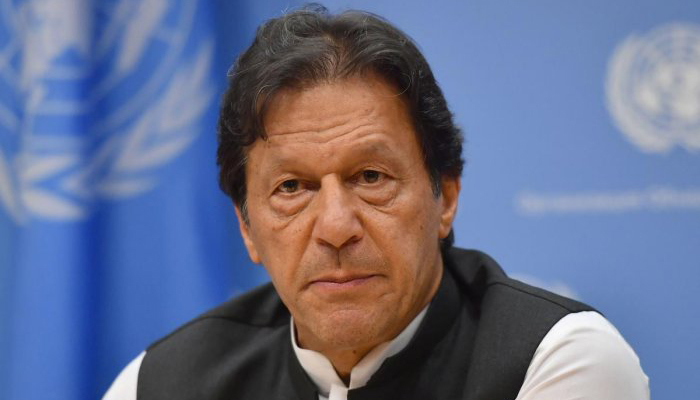Fascist ideology imposed in India 'biggest threat to regional peace': PM Imran
January 25, 2020

ISLAMABAD: Prime Minister Imran Khan criticised his Indian counterpart Modi on Saturday, stating that his fascist policies in the country were the "biggest threat to regional peace".
Taking to Twitter, PM Imran tweeted the cover of the latest edition of The Economist which criticises the Modi government's policies. The prime minister said that the world was acknowledging the "anti-democratic and fascist ideology" being imposed in occupied Kashmir and India.
Read more: Decade-old magazine covers highlight contrast between modern-day Pakistan, India
"The world is now acknowledging the anti-democratic and fascist ideology being imposed in IOJK and in India. This is the biggest threat to regional peace and stability. Already 8 million Kashmiris & Muslims in India are suffering because of Modi's fascist policies," he tweeted.
The Economist explained the cover of its latest edition, stating that it was all about how Modi had sown division in India through his contentious policies. The publication talked about how the Indian government had made it easier for minorities other than Muslims to gain citizenship.
"At the same time, they want to compile a register of all India's 1.3bn citizens. Those sound like technicalities, but many of the country's 200m Muslims do not have the papers to prove they are Indian, so they risk being made stateless," read a post on the website.
The Economist further states that the government has decided to build camps to detain those who were "caught in the net" which seemed to be a step to incite Muslims. "That is electoral nectar for the BJP, but political poison for India," read a line from the post.
The publication states that Modi's policies risk shedding innocent blood and undermine the secular principles of the Indian constitution. "Mr Modi's latest initiatives threaten to do damage to democracy," reads a line from the post.
Indian citizenship law divides India, triggers protests
The Citizenship (Amendment) Act, 2019, passed by the Indian parliament on December 11, offers citizenship to refugees of several faiths including, Hinduism, Sikhism and Buddhism but does not grant the same to Muslims.
Read more: Giant new rallies slam Indian government's citizenship law
The statute, deemed "fundamentally discriminatory" by the Office of the United Nations High Commissioner for Human Rights, has triggered widespread protests in India across various cities.
Critics say the law is a precursor to a national register of citizens that many among India's 200 million Muslims fear will leave them stateless. Many poor Indians do not have documents to prove their nationality.
Earlier this month, some 30,000 marched in the southern city of Bangalore, more than 20,000 in Siliguri and thousands in Chennai, while big rallies were also held in New Delhi, Guwahati and other cities.











